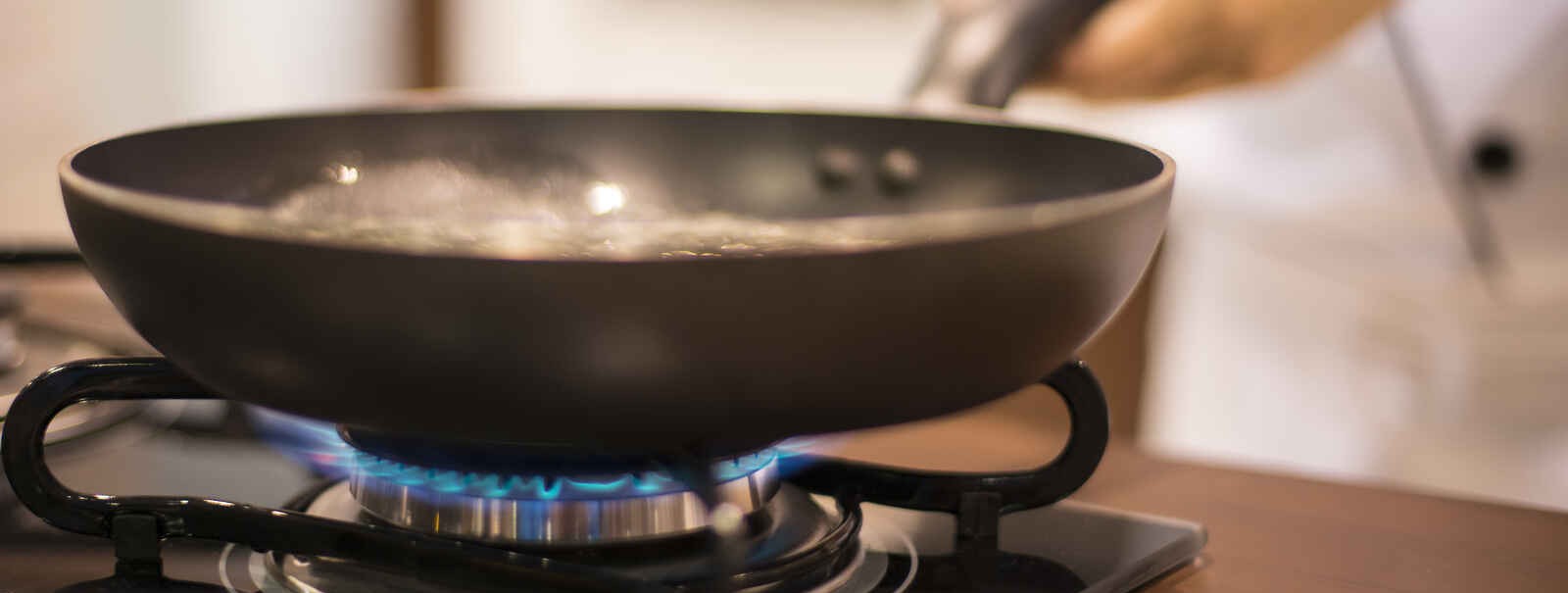March 30, 2025

Non-stick cookware -- an unexpected hazard
Hazards in our homes
Being captive, our birds are not free to just "fly away" when dangerous situations
arise. So it is our responsibility to be aware of and manage dangers.
Non-stick cookware
Most people are surprised to learn that non-stick (Teflon, PTFE) cookware and appliances
present a deadly hazard to birds. Birds have extremely efficient and sensitive breathing
systems. Because of this, toxins in the air that we might not even notice can be deadly
to them. The worst is from non-stick cookware. If a pot boils dry, your birds are dead.
It is that simple. As one person I know said, it is not a matter of whether it will
happen, but when it will happen. I long ago got rid of all my non-stick and it is
absolutely banned in my house. Even normal use of a non-stick baking sheet will kill
your birds. The reason I decided to revise these pages was because just this morning someone
told me yet another story of someone in their family killing all their birds when
a pan overheated.
I cook on cast iron and love it. People did fine for centuries before non-stick was
invented. Despite what the "better living through chemistry" marketing people tell
you, you can do just fine without it. Watch our for it in popcorn poppers, and other
appliances where you might not expect to find it.
Escape
Things don't go well for an innocent parrot in the great outdoors.
Escape is not freedom, but a death sentence in fairly short order.
Many people clip their birds wings (either get trained or have somone
like a vet or expert do this). But a clipped bird faces other hazards.
Many birds have escaped through an open door or have been on an owners
shoulder when they absent mindedly walked outside.
Eternal vigilance is the only answer here, or keeping them always in
their cages.
Pets
People usually think cats, but I have heard of more stories involving dogs than any other.
I love dogs, and most are fine. Some just have a hunting drive and it is almost
impossible for an owner to control or change it when they do. Things happen fast.
Cats are really only an issue with small birds like budgies. And usually cats fairly
quickly accept a bird as "part of the family", or so I am told.
Ferrets can be especially dangerous.
My birds lived for years with two large dogs -- but with the birds in their cages there
was no real risk and after initial investigations, the dogs lost interest anyway.
Flying birds
It seems like every bird knows how to take off and then fly. But what then?
Landing is not instinctive. And until they learn, the window looks great and
they will fly full speed into it and be injured or killed.
And what if they land on a hot stove. Roaming birds on the floor can easily
not be noticed and get stepped on. Birds have drowned in toilets.
If my birds are out, someone (namely me) is on alreat and keeping tabs on them
at all times.
Ceiling fans
If your birds ever fly around, the situation is obvious and it is only a matter of time
before a bad accident happens.
Candles, air fresheners, etc.
Especially scented candles pose a hazard. Aerosol air fresheners should not be used.
Keeping a clean house is the answer to the problem these things are sold to solve.
Pesticides
If you have someone come to your house to spray, you need to rethink the whole thing.
Birds can be killed by bug spray just as from vaporized non-stick.
It is those super efficient bird lungs again.
The birds are gifted with them so they can fly, but anything toxic in the air
has a good chance of killing them, while we would hardly notice.
Forbidden foods
Never feed your birds any of the following three:
- Chocolate
- Avocado
- Alcohol
Like dogs, birds cannot assimilate chocolate and in large enough amounts it is toxic.
How much? I don't know -- why take chances? As for alcohol, once again what seems
like a small amount to us is a lot for an animal that weighs a pound or less,
so why play Russian roulette?
Avocado is surprising, but I have heard too many bad stories to mess with it.
There are plenty of safe and perfectly good foods, so avoid it.
Have any comments? Questions?
Drop me a line!
Tom's parrot pages / [email protected]

